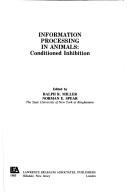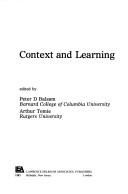| Listing 1 - 10 of 16 | << page >> |
Sort by
|
Dissertation
Year: 2022 Publisher: Liège Université de Liège (ULiège)
Abstract | Keywords | Export | Availability | Bookmark
 Loading...
Loading...Choose an application
- Reference Manager
- EndNote
- RefWorks (Direct export to RefWorks)
For years, the sale of narcotics has been a topic of media interest. A lot of research has been carried out on the sale of drugs, structured trafficking in the South American continent or even on normalized consumption in certain English cities, but little research has been carried out in French on the experiences of these dealers who are encountered on every street corner. In this qualitative research, we tried to describe the experiences and perceptions of former drug dealers. Seven candidates: 3 incarcerated people, 3 people on probation and one person recruited through social networks agreed to be interviewed in order to find out more about their experience of selling drugs. Several findings emerged from our interviews, such as the existence of a link with social learning theory through the influence of delinquent peers. However, some of the concepts do not corroborate with our findings. It also emerged that the participants consider their sales as a business with these techniques that can be compared to a traditional business. Depuis des années, la vente de stupéfiants alimente les médias. De nombreuses recherches ont été réalisées en matière de vente de stupéfiants, de trafics structurés dans le continent Sud-Américain ou encore en matière de consommation normalisée dans certaines villes anglaises mais peu de recherches francophones ont été réalisées sur le vécu de ces dealers que l’on croise à chaque coin de rue. Dans cette recherche de type qualitative, nous avons tenté de décrire le vécu, l’expérience et la perception d’anciens vendeurs de stupéfiants. Ils sont sept candidats : trois personnes incarcérées, trois personnes en probation et une personne recrutée sur les réseaux sociaux à avoir accepté un entretien afin d’en savoir davantage sur leur vécu par rapport à la vente de stupéfiants. Plusieurs résultats ont émergés de nos entretiens comme l’existence d’un lien avec la théorie de l’apprentissage social de par l’influence de pairs délinquants. Cependant, certains concepts ne corroborent pas avec nos résultats. Il ressort également que les participants considèrent leurs ventes comme du business avec ces techniques que l’on peut comparer à une entreprise traditionnelle.
Book
ISBN: 3828205763 3110508621 9783110508628 Year: 2016 Publisher: München ; Wien : De Gruyter Oldenbourg,
Abstract | Keywords | Export | Availability | Bookmark
 Loading...
Loading...Choose an application
- Reference Manager
- EndNote
- RefWorks (Direct export to RefWorks)
Economics. --- Economic theory --- Political economy --- Social sciences --- Economic man --- Economics --- Risk-taking (Psychology) --- Sensation seeking --- Psychological aspects --- E-books --- Stimulation seeking --- Personality --- Risk behavior --- Risky behavior --- Taking risks --- Human behavior --- Behavioral economics --- Behavioural economics --- Crime. --- HIV. --- Social Learning Theory.
Book
ISBN: 0805801391 Year: 1988 Publisher: Hillsdale, N.J. Erlbaum
Abstract | Keywords | Export | Availability | Bookmark
 Loading...
Loading...Choose an application
- Reference Manager
- EndNote
- RefWorks (Direct export to RefWorks)
Psychiatry --- Behavioral Medicine. --- Conditioning (Psychology) --- Conditioned response --- Medicine, Psychosomatic --- Psychosomatic medicine --- Somatopsychics --- Medicine and psychology --- Mind and body --- Neuroses --- Psychology, Pathological --- Conditional reflexes --- Conditional response --- Conditioned reflexes --- Response, Conditioned --- Association of ideas --- Behaviorism (Psychology) --- Learning, Psychology of --- Reflexes --- Habituation (Neuropsychology) --- Conditioning --- Conditionings (Psychology) --- Medicine, Behavioral --- Health Psychology --- Psychology, Health --- Health Psychologies --- Psychologies, Health --- Conditioned response. --- Medicine, Psychosomatic. --- Conditioning (Psychology). --- Behavioral Medicine --- Social Learning Theory --- Social Learning Theories --- Theory, Social Learning --- Conditioning, Psychology --- Psychological Conditioning
Book
ISBN: 089859586X Year: 1985 Publisher: Hillsdale Erlbaum
Abstract | Keywords | Export | Availability | Bookmark
 Loading...
Loading...Choose an application
- Reference Manager
- EndNote
- RefWorks (Direct export to RefWorks)
Affect. --- Cognition. --- Conditioning (Psychology) --- Affect (Psychology) --- -Cognition --- -Conditioned response --- -Conditional reflexes --- Conditional response --- Conditioned reflexes --- Response, Conditioned --- Association of ideas --- Behaviorism (Psychology) --- Learning, Psychology of --- Reflexes --- Habituation (Neuropsychology) --- Psychology --- Emotions --- Conditioning --- Conditionings (Psychology) --- Cognitive Function --- Cognitions --- Cognitive Functions --- Function, Cognitive --- Functions, Cognitive --- Mood --- Affects --- Moods --- Congresses --- Solomon, Richard L. --- -Congresses --- Cognition --- Conditioned response --- Congresses. --- Affect --- Conditional reflexes --- Social Learning Theory --- Social Learning Theories --- Theory, Social Learning --- Conditioning, Psychology --- Psychological Conditioning
Dissertation
ISBN: 909001926X Year: 1987 Publisher: Meppel Krips Repro
Abstract | Keywords | Export | Availability | Bookmark
 Loading...
Loading...Choose an application
- Reference Manager
- EndNote
- RefWorks (Direct export to RefWorks)
Affect. --- Cognition. --- Depression. --- Conditioning (Psychology) --- 159.942 --- Conditioning --- Conditionings (Psychology) --- Emotional Depression --- Depressive Symptoms --- Depression, Emotional --- Depressions --- Depressions, Emotional --- Depressive Symptom --- Emotional Depressions --- Symptom, Depressive --- Symptoms, Depressive --- Cognitive Function --- Cognitions --- Cognitive Functions --- Function, Cognitive --- Functions, Cognitive --- Mood --- Affects --- Moods --- Emoties algemeen --- Theses --- Affect --- Cognition --- Depression --- CONDITIONING (PSYCHOLOGY) --- HELPLESSNESS --- LEARNED --- psychology --- 159.942 Emoties algemeen --- CONDITIONING (PSYCHOLOGY). --- psychology. --- Conditioning (psychology). --- Helplessness --- Learned --- Psychology. --- Social Learning Theory --- Social Learning Theories --- Theory, Social Learning --- Conditioning, Psychology --- Psychological Conditioning
Book
ISBN: 1847081355 1847081738 9781847081353 9781847081735 Year: 2009 Publisher: London: Granta,
Abstract | Keywords | Export | Availability | Bookmark
 Loading...
Loading...Choose an application
- Reference Manager
- EndNote
- RefWorks (Direct export to RefWorks)
Uncovering the dark side of the 'have a nice day' nation, Barbara Ehrenreich savagely attacks the tyranny of positive thinking in the United States. From contemporary religion to business and the economy, Ehrenreich argues that the insistence on being cheerful actually leads to a lonely and dangerous inwards focus.
Happiness --- Optimism --- Self-confidence --- Success in business --- Conditioning (Psychology) --- #SBIB:316.7C121 --- 316.62 --- 316.62 Sociaal gedrag. Leefstijl --- Sociaal gedrag. Leefstijl --- Conditioning, Psychology --- Psychological Conditioning --- Social Learning Theory --- Social Learning Theories --- Theory, Social Learning --- Assurance, Self --- Self-assurance --- Confidence --- Emotions --- Self-reliance --- Gladness --- Cheerfulness --- Contentment --- Pleasure --- Well-being --- Personality --- Philosophy --- Social aspects --- history --- Cultuursociologie: gedragspatronen, levensstijl --- Optimism - United States --- Happiness - Social aspects - United States --- Self-confidence - Social aspects - United States --- Success in business - United States
Periodical
Abstract | Keywords | Export | Availability | Bookmark
 Loading...
Loading...Choose an application
- Reference Manager
- EndNote
- RefWorks (Direct export to RefWorks)
Psychology --- Behavioral Sciences --- Conditioning (Psychology) --- Neuropsychology --- Conditioned response --- Psychologie --- Réflexe conditionné --- Periodicals --- Périodiques --- Behavioral Sciences. --- Neuropsychology. --- Conditioned response. --- Psychology. --- Psychology and mental health. --- Psychology and mental health --- Health Sciences --- Psychiatry & Psychology --- Conditional reflexes --- Conditional response --- Conditioned reflexes --- Response, Conditioned --- Association of ideas --- Behaviorism (Psychology) --- Learning, Psychology of --- Reflexes --- Habituation (Neuropsychology) --- Neuropsychologies --- Neuropsychiatry --- Conditioning --- Social Learning Theory --- Social Learning Theories --- Theory, Social Learning --- Proxemics --- Behavioral Science --- Proxemic --- Science, Behavioral --- Sciences, Behavioral --- Behavioral sciences --- Mental philosophy --- Mind --- Science, Mental --- Human biology --- Philosophy --- Soul --- Mental health --- Conditioning, Psychology --- Psychological Conditioning --- Industries --- Conditioning, Psychological.

ISBN: 0898595061 9780898595062 Year: 1985 Publisher: Hillsdale (N.J.): Erlbaum,
Abstract | Keywords | Export | Availability | Bookmark
 Loading...
Loading...Choose an application
- Reference Manager
- EndNote
- RefWorks (Direct export to RefWorks)
Inhibition --- Animal psychology --- Conditioned response --- Conditioning (Psychology) --- Behavior, Animal --- Inhibition (Psychology) --- Congresses --- Behavior, Animal. --- -Conditioned response --- -Inhibition --- -Free will and determinism --- Habit --- Psychology --- Will --- Impulse --- Conditional reflexes --- Conditional response --- Conditioned reflexes --- Response, Conditioned --- Association of ideas --- Behaviorism (Psychology) --- Learning, Psychology of --- Reflexes --- Habituation (Neuropsychology) --- Animals --- Psychology, Comparative --- Inhibitions --- Inhibitions (Psychology) --- Conditioning --- Conditionings (Psychology) --- Animal Behavior --- Animal Behaviors --- Behaviors, Animal --- Ethology --- -Congresses --- Free will and determinism --- Social Learning Theory --- Social Learning Theories --- Theory, Social Learning --- Inhibition, Psychology --- Psychological Inhibition --- Inhibitions, Psychological --- Inhibitions, Psychology --- Psychological Inhibitions --- Psychology Inhibition --- Psychology Inhibitions --- Conditioning, Psychology --- Psychological Conditioning --- Autotomy Animal --- Inhibition - Congresses --- Animal psychology - Congresses --- Conditioned response - Congresses --- Conditioning (Psychology) - congresses --- Behavior, Animal - congresses --- Inhibition (Psychology) - congresses

ISBN: 0898594421 Year: 1985 Publisher: London : Lawrence Erlbaum Associates [LEA],
Abstract | Keywords | Export | Availability | Bookmark
 Loading...
Loading...Choose an application
- Reference Manager
- EndNote
- RefWorks (Direct export to RefWorks)
Behavior. --- Conditioning (Psychology) --- Learning. --- Conditioned response --- Context effects (Psychology) --- Learning, Psychology of --- Performance --- Competence --- Work --- Learning --- Psychology of learning --- Educational psychology --- Comprehension --- Learning ability --- Associations, Contextual (Psychology) --- Context (Psychology) --- Contexts (Psychology) --- Contextual associations (Psychology) --- Contextualism (Psychology) --- Effects, Context (Psychology) --- Psychology --- Conditional reflexes --- Conditional response --- Conditioned reflexes --- Response, Conditioned --- Association of ideas --- Behaviorism (Psychology) --- Reflexes --- Habituation (Neuropsychology) --- Memory Training --- Phenomenography --- Training, Memory --- Memory Consolidation --- Education --- Conditioning --- Conditionings (Psychology) --- Acceptance Process --- Acceptance Processes --- Behaviors --- Process, Acceptance --- Processes, Acceptance --- Psychological aspects --- Behavior --- Social Learning Theory --- Social Learning Theories --- Theory, Social Learning --- Conditioning, Psychology --- Psychological Conditioning
Periodical
ISSN: 21687846 Year: 1991 Publisher: [New Brunswick, NJ] : [Transaction Periodicals Consortium, Rutgers University],
Abstract | Keywords | Export | Availability | Bookmark
 Loading...
Loading...Choose an application
- Reference Manager
- EndNote
- RefWorks (Direct export to RefWorks)
Psychology --- Conditioned response --- Behavioral Sciences. --- Conditioning (Psychology) --- Neuropsychology. --- Psychophysiology. --- Verhaltensphysiologie. --- Zeitschrift. --- Mind-Body Relationship (Physiology) --- Physiologic Psychology --- Physiological Psychology --- Psychology, Physiologic --- Mind-Body Relations (Physiology) --- Psychology, Physiological --- Mind Body Relations (Physiology) --- Mind Body Relationship (Physiology) --- Mind-Body Relation (Physiology) --- Mind-Body Relationships (Physiology) --- Physiologic Psychologies --- Psychologies, Physiologic --- Relation, Mind-Body (Physiology) --- Relations, Mind-Body (Physiology) --- Relationship, Mind-Body (Physiology) --- Relationships, Mind-Body (Physiology) --- Neuropsychologies --- Conditioning --- Conditionings (Psychology) --- Proxemics --- Behavioral Science --- Proxemic --- Science, Behavioral --- Sciences, Behavioral --- Conditional reflexes --- Conditional response --- Conditioned reflexes --- Response, Conditioned --- Conditioned response. --- Psychology. --- Behavioral sciences --- Mental philosophy --- Mind --- Science, Mental --- Industries --- Psychosomatic Medicine --- Mind-Body Relations, Metaphysical --- Neuropsychiatry --- Association of ideas --- Behaviorism (Psychology) --- Learning, Psychology of --- Reflexes --- Habituation (Neuropsychology) --- Human biology --- Philosophy --- Soul --- Mental health --- Conditioning (Psychology). --- Verhaltensphysiologie --- Zeitschrift --- Periodikum --- Zeitschriften --- Presse --- Fortlaufendes Sammelwerk --- Verhalten --- Ethophysiologie --- Physiologie --- Social Learning Theory --- Social Learning Theories --- Theory, Social Learning --- Conditioning, Psychology --- Psychological Conditioning --- Conditioning, Psychological. --- Réflexe conditionné --- Réflexe conditionné
| Listing 1 - 10 of 16 | << page >> |
Sort by
|

 Search
Search Feedback
Feedback About UniCat
About UniCat  Help
Help News
News